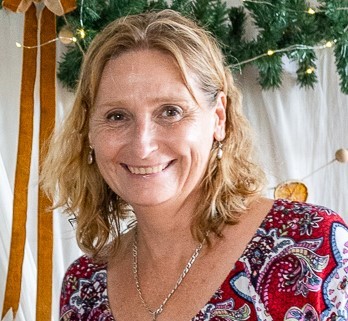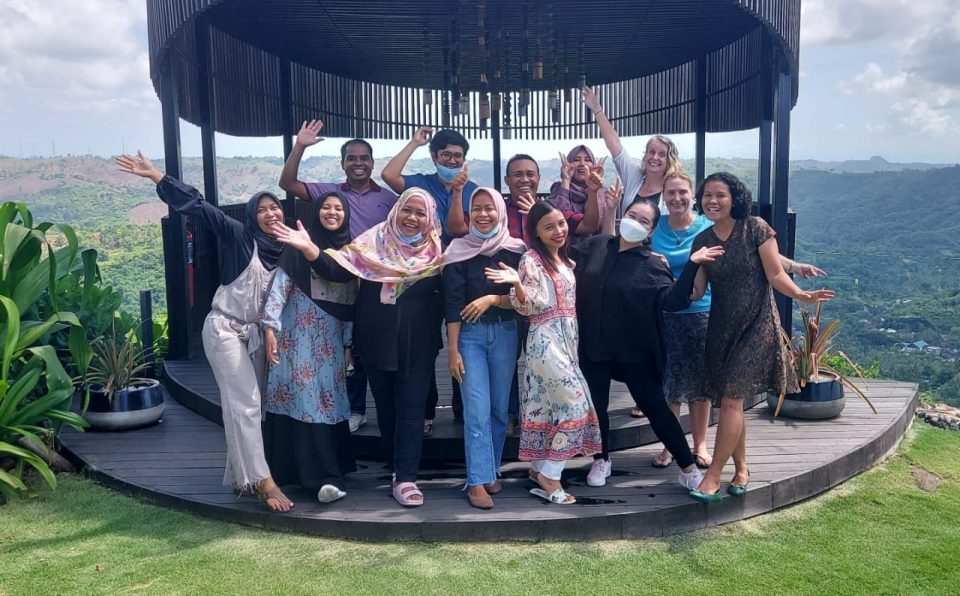The school serves all year groups from Early Years through to High School. As a small school, students experience a unique, tailored learning environment that is very connected to the local community.
Read the recent interview with head teacher Julie Moreno and Reef Property Lombok to learn more. If you would like to get in touch with the school, you can do so here.
Hi Julie, thank you for taking the time to talk to us about Mandalika Intercultural School (MIS). Can you tell our readers a little about yourself and what brought you and your family to Lombok?
Yes sure, I’m originally from Brisbane, Australia and have been working in international schools for more than 20 years. My area of speciality is High School teaching in Biology and Geography, though I have taught many subjects at many grade levels. I also have a Master of Environment in Education for Sustainability and am passionate about service learning and global citizenship.
After travelling the world extensively and teaching in schools in four other countries, my husband, two children, and I fell in love with Indonesia and its people. After 10 years in Java, we finally followed our dreams and moved to Lombok to settle in our forever home. We love living close to such beautiful beaches, being part of a small, vibrant tourist-centred community, and being part of a fast-developing hub, which is exciting and challenging at the same time.
Can you give us a brief background on the school? When it was formed? What year groups it serves and what curriculum that follow?
MIS first opened as Rinjani Indah School in 2017 by Rod and Jacqueline Chin, who had a vision of an international school embedded and interacting with the local community. While our lessons are in English, we have a strong Bahasa Indonesia program, teach the national curriculum requirements for Indonesian students and are developing our English as an Additional Language program.
We strive to be inclusive of children from all cultures, backgrounds, and abilities, and welcome students from three years old into our Early Years program. Our eldest students will enter the Cambridge A Levels program (for 16-18-year-olds) in August 2022. Our Early Years program is play-based and follows the Australian Curriculum Framework. The Primary and Middle School outcomes are from the Australian Curriculum with an international focus on HASS (Humanities and Social Studies) and Science. High School students have a choice of subjects from the Australian and International Cambridge courses. We currently have over 50 students enrolled.
What do you love most about the Mandalika Intercultural School?

There are quite a few things I love about the school!
Because we are a small school, we can really cater to every student, support them in areas they need, and encourage them to pursue and grow in their talents and passions. We have excellent teachers who are caring and creative. Our ratio of students to teachers (currently 1:5) means teachers can support each student with their learning. We are very connected to our local community and our students are involved in many activities: sports, creativity, and community service, both in class time and outside of school.
Our new, purpose-built campus has been designed to blend in well with our beautiful surroundings in the rice fields and at the base of the surrounding hills, while also providing comfortable yet stimulating learning spaces. We have many collaborative spaces where students and teachers can break out into working groups, as well as a large Science Laboratory, Library, playing fields and gardens. I love working in this space.
My teenage children attend the school and I’m very happy that as well as being a principal, I’m also a parent. I love that my teens interact with children of all ages from all types of backgrounds. While their native language is English, they’re both competent in Bahasa Indonesia and Spanish as well. I love that they are active outdoors and have been involved in several community projects.
My daughter has four levels of SCUBA diving certificates, Model United Nations (MUN) awards, organised Lombok’s first interschool MUN event (MUNBOK), can surf and skateboard, and helps regularly with the welfare of stray dogs with Kuta Lombok Dogs. My son runs an after-school club for Dungeons and Dragons, has an award for Bahasa Indonesia speaking, has participated in several MUN competitions and loves being in the Security Council, and learns Muay Thai and Circus skills. I love that he can also pursue his passion for History and is taking classes above his year level in this subject.
I really love that all our children have so many opportunities to follow their passions and learn new skills. They have learnt to interact with people from all backgrounds and they are truly global citizens.
What are some of the unique things the kids enjoy about the school?
We have very creative students! They love to build and construct, cook, and explore solutions and multiple perspectives. What other school would be doing Shakespeare on a mountain between Tanjung Aan Bay and the drama of the ocean? When we need to exert ourselves, we just pack up and go on a nature hike, where the starting point is less than five minutes away. Our school activities range from hip-hop classes to robotics to highly academic science fairs. We are as diverse as our community!
About living in the area in general – kids can feel safe riding their bicycles to school, walking down the streets with their friends, and hanging out at the beach on the weekends.
What are some of the biggest differences the students find between the school and their previous education?
Small class sizes, low teacher-to-student ratio, individual education plans, well-being programs, authentic learning, and inquiry learning addressing real-world issues and solutions. MIS teachers believe that learning should be fun and engaging for all of our students.
Our students often learn in groups of mixed ages. At MIS, we believe that it’s important for our students to be able to communicate and collaborate with people of all ages.
Extracurricular activities: Surfing, skateboarding, yoga, martial arts, SCUBA diving, camping, and hiking.
Our students help with local community organisations such as Kuta Lombok Dogs, Mandalika Dog Shelter, Batu Bambu kids foundation, Lombok Aid, Lombok Plastic Free, and more.
What are some of the common questions you receive from potential new parents/students interested in enrolling in the school?
If students attend our school, can they return to school in their home country? YES! Our curriculum is internationally recognised and our assessment and reporting outcomes are clear and transferable.
What if they cannot speak English? Immersion is the best way for children to learn a language. EAL students join regular classes, with support, and we find that their English develops very, very quickly.
Do we offer the National Curriculum and examinations for Indonesian students? Yes, our Indonesian students must take the national curriculum from grade 4. We offer Bahasa Indonesia and Civics classes, organise Religion classes and prepare students for their national exams.
When does our school year start and finish? Our academic school year starts in July/August and ends in June. Students are welcome to join at any time of the year. As we have students from both the Northern and Southern hemispheres, our main holidays are split between December/January and June/July.
We have heard that MIS has recently opened a brand new campus. Can you tell us more about that?
Our brand new school will open for term 2 of our 2022/2023 school year, so in mid-October 2022. We are all very excited for our beautiful campus to be completed.
The campus is designed to fit sustainably with the environment, to be bright and airy with collaborative learning areas and to make the best use of the extensive green spaces and undercover buildings. It will include a dedicated Early Years Centre; a large, covered Multi-court space; Science/Artspace; a library; outdoor learning areas; a sports field; and an organic farm.
Mandalika Intercultural School is truly unique in this part of the world, with our innovative teaching and learning programs, the truly caring staff, and the gorgeous grounds and surroundings. Every child feels welcome and part of our big MIS family.




